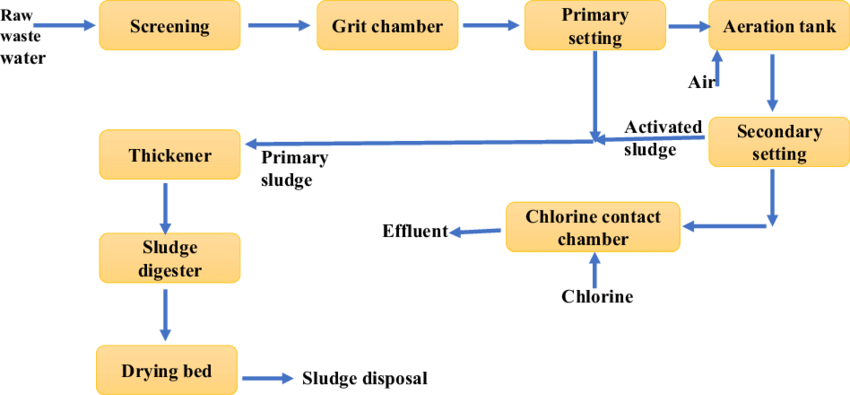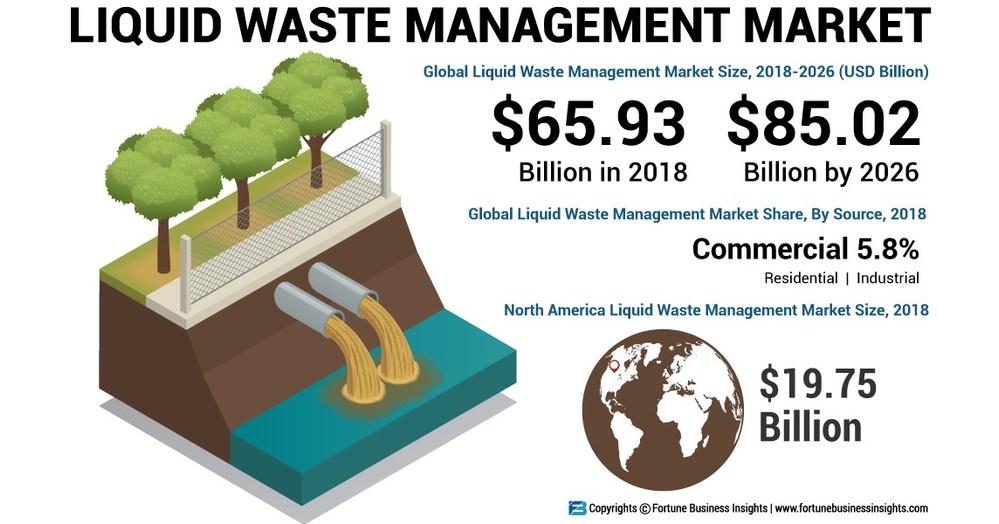Not known Factual Statements About Reclaim Waste
Not known Factual Statements About Reclaim Waste
Blog Article
Reclaim Waste for Beginners
Table of ContentsNot known Details About Reclaim Waste 9 Simple Techniques For Reclaim WasteThe Ultimate Guide To Reclaim WasteThe Ultimate Guide To Reclaim WasteThe Best Strategy To Use For Reclaim Waste
Check out the kinds, occurrences, and forms of fluid waste. Residential sewer waste refers to the waste and products from a household septic system. This type of waste is produced by humans in homes, colleges, and various other structures. This only consists of septic storage tanks that have a drain field. The correct management and disposal of domestic sewer waste call for liquid waste to be transferred to a sewer treatment plant where the proper approaches and devices are used to detoxify and throw away waste.
Industrial waste often consists of possible hazards, such as flammable materials or a mix of liquid and solid waste items, and needs an extra advanced and in-depth disposal procedure. The disposal of industrial waste usually includes the filtration of waste before transportation to make certain safe and proper disposal. Hazardous waste is produced from results and drainage of industrial procedures and production.
This kind of waste can not utilize the exact same sewer management transport or procedures as septic or business fluids. The industrial waste monitoring procedure calls for the assessment and testing of fluid waste before it goes through the disposal procedure (liquid waste removal melbourne). Drainage waste is the liquid waste that comes from runoff and excess stormwater in highly booming areas or cities
Overflow waste can trigger contamination and flooding if not managed correctly. Ensuring appropriate waste monitoring can stop calamities and reduce environmental harm.
Some Known Details About Reclaim Waste
Call PROS Solutions today to learn more about our waste administration and disposal services and the appropriate ways to care for the fluid waste you produce.
(https://www.domestika.org/en/reclaimwaste1)This supposed 'wastewater' is not only a vital source but, after therapy, will certainly be launched to our land, waterways or the ocean. Utilized water from bathrooms, showers, bathrooms, kitchen area sinks, washings and commercial procedures is known as wastewater.

water made use of to cool down machinery or clean plant and devices). Stormwater, a kind of wastewater, is runoff that moves from farming and metropolitan areas such as roofings, parks, yards, roadways, paths and seamless gutters right into stormwater drains pipes, after rain. Stormwater flows neglected directly to local creeks or rivers, eventually reaching the ocean.
What Does Reclaim Waste Mean?
In Queensland, most wastewater is treated at sewage therapy plants. Wastewater is carried from domestic or commercial sites through a system of drains and pump terminals, referred to as sewage reticulation, to a sewer treatment plant. Local federal governments develop, maintain and operate most sewer therapy plants. Operators are certified under the Environmental Security Act 1994 to discharge treated wastewater at an acceptable ecological standard right into rivers.
The Division of Natural Resources suggests city governments about managing, operating and maintaining sewage systems and therapy plants. In unsewered areas, local federal governments might need householders to mount individual or family sewage treatment systems to treat domestic wastewater from bathrooms, kitchen areas, shower rooms and laundries. The Division of Natural Resources authorizes the use of family systems when they are proven to be reliable.
In some brand-new class, treatment of some stormwater to get rid of litter, sand and gravel has actually begun making use of gross contaminant catches. Wastewater treatment takes place in four stages: Eliminates solid matter.
Uses tiny living microorganisms recognizes as micro-organisms to damage down and get rid of staying dissolved wastes and great bits. Micro-organisms and wastes are integrated in the sludge.
The 5-Second Trick For Reclaim Waste
Nutrient removal is not readily available at all sewer treatment plants since it needs expensive specialist tools. Clear liquid effluent generated after treatment might still contain disease-causing micro-organisms - liquid waste disposal.

This usually suggests wastewater needs to be treated or pollutants eliminated before it can be released to rivers. Most wastewater moves right into the sewerage system. Under the Act, regional governments carry out approvals and permits for environmentally relevant tasks (Periods) involving wastewater releases that could have a local influence. The department carries out authorizations and licences to ERAs including wastewater launches that could have a local or statewide impact.
Some Of Reclaim Waste
Or else, samples are considered lab evaluation. Usually several tests are needed to establish the degrees of each of the different toxins such as oils, hefty steels and pesticides in water. Surveillance provides valid details about water top quality and can validate that licence problems are being fulfilled. The info obtained via surveillance gives the basis for making water high quality choices.
Report this page